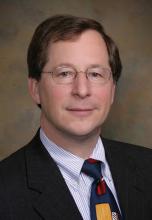Three Texas medical societies have joined forces with one goal in mind: to save local physician practices.
The Texas Medical Association (TMA), along with the Dallas and Harris County medical societies, have formed a new physician services organization to deliver "survival tools" aimed at helping doctors to stay competitive as independent practices rather than becoming part of hospital systems.
"Physicians nowadays are faced with some real challenges with all of the changes that are taking place in health care," said Dr. Joseph H. Schneider, a pediatrician and member of the task force that worked on developing the organization.
Dr. Schneider, the chief medical information officer at Baylor Health Care System in Dallas, cited the rapid growth in the number of Accountable Care Organizations (ACOs), pressure to adopt electronic health record (EHR) systems and meet federal meaningful use requirements, and the transition to ICD-10 in 2014 as just a few of the forces that make it a challenge for practices to stay afloat financially without the backing of a hospital.
"Physicians need help," he said.
The Physician Services Organization for Patient Care, the formation of which was formally announced in May, will identify tools that physicians can use to keep their practices competitive in today’s marketplace – everything from help shopping for an EHR to assistance mining quality data.
Dr. C. Bruce Malone, a past president of TMA, orthopedic surgeon, and member of the physician services organization task force, said TMA has already held several meetings with large insurers in the state in an effort to get physicians access to some of the data analytics tools used by health plans.
At the same time, the new organization will be launching pilot projects to test out the best ways to coordinate care between practices. These efforts are aimed at allowing physicians in small practices to participate in physician-led ACOs, something that would be difficult for practices with limited capital to do on their own, Dr. Malone said.
"When we say we think it can save independent practice, we don’t mean that it can preserve the status quo," Dr. Malone said. "We’re trying to create a situation where doctors can get together and create some kind of clinical integration. I don’t think there’s any question that in the future integration of the clinical practice will be the trend."
Dr. Norman H. Chenven, a family physician who founded the Austin Regional Clinic, is one of the physicians on the cutting edge of care coordination. His practice is part of a Pioneer ACO through the Medicare program and has care coordination contracts with several private insurers. The practice also has a history in the area of taking on financial risk for population health. In the 1980s and 1990s, the Austin Regional Clinic had success in caring for patients under the managed care model. That experience, coupled with the large size of the multispecialty practice, made it possible for them to move back into managing the health populations today, Dr. Chenven said.
But smaller practices don’t necessarily have the funds to make up-front investments in better care management, Dr. Chenven said, such as hiring case managers or purchasing new software. Those types of investments are important because they allow providers to assess patient needs before they come to the office and reach out to them for preventive care rather than waiting for health problems to develop, said Dr. Chenven, who has advised the TMA’s physician services organization task force.
Seeing that physicians in small practices in Texas might either be left out of the move to coordinated care or be forced to join hospitals, the TMA decided to put up the seed money to start the new physician services organization. The next step will be to choose partners among technology vendors, insurers, and hospitals that can either provide tools to practices or aid in pilot projects, Dr. Malone said. Physicians won’t be asked to pay to join the new organization, Dr. Malone said, but if they are involved in pilot projects, they will likely need to make investments in practice changes.
"This whole thing is not something that I think will increase the profit for a medical clinic, but I think it may ensure its survival," Dr. Malone said.
The work of the new physician services organization won’t be easy. A few years ago, with ACOs starting to emerge, a handful of physicians at TMA began trying to figure if they could connect physician practices that wanted to coordinate care in a "virtual multispecialty clinic." They started testing the concept in a small pilot in Abilene with Texas Blue Cross Blue Shield.



